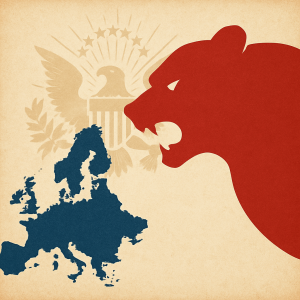This is the only benefit of the Brexit, but what a benefit! From North to South, from East to West, the number of Europeans who want their country to leave the EU is falling everywhere. The Guardian notes that the decline is 15.4% in Finland, 10.7% in Slovenia, 9.5% in the Netherlands and 8.3% in France.
In every member state with no exception, the percentage of Europeans who say they are very attached to membership of the Union has risen as well, often so dramatically that 72%, nearly three quarters of the citizens of the 27 now consider their unity to be a good thing. Although not as passionately popular as Zidane or Messi, the Union has thus become formidably popular not only because 60% of Britons regret leaving it but also because the benefits and the necessity of unity have been proven in the face of the pandemic and the return of war to Europe.
Never has the situation been so favourable to the deepening of European unity because the evolution of the Member States is just as clear as that of public opinion. None of the 27 capitals of the Union any longer rejects the ideas of European defence and common industrial policies financed by joint loans. Once the sole concern of the French, these ideas have yet to be defined and implemented in the inevitable tussles, but the taboos that prevented any progress have now fallen.
After the common market and the single currency, the Union is well and truly entering the third moment of its history, that of the construction of a political union, which is already being affirmed in the common front of the Europeans in the face of Vladimir Putin and their arms deliveries to the Ukraine, but how can we deliver?
This is the first question, and the answer is that the mistake to avoid would be to try again for immediate institutional reform. The compromise proposals that this would lead to would inevitably be misunderstood since Europeans do not master the current institutions. Barring a miracle, we would be heading for new “no” votes in many countries and this would be followed, as after the rejection of the draft constitutional treaty, by a long sleep that the European Union can no longer afford when it is, in fact, at war.
For some time to come, we will have to make do with outdated institutions, because this is not the time to debate the comparative merits of Swiss, German or American federalism. It is, on the contrary, time for concrete achievements, expected by 450 million Europeans and sealing new links and new solidarities between the Member States. It is these achievements and not the other way round that will give rise to the institutions to come, but then, the second question is: when and where to start?
The answer lies in the timetable. In a year’s time, the campaign for the European elections will begin. The far left, the far right, the left, the right, the centre and the greens will compete in this battle for control of the Parliament, and each of these political families could present – in each of the 27 States, since the ballot remains national – the seven proposals that it would undertake to defend in the Strasbourg chamber in order rally the heads of State and government.
Why seven?
Because nine, eleven or thirteen is no longer a list of priorities, because this number is ambitious without being excessive and because we cannot be taken seriously by replaying the labours of Hercules.
The campaign would thus be about priorities versus priorities and would outline coalitions of ideas that go beyond traditional divisions that have become obsolete. Much more than simply European, these elections would be a first draft of federal elections and would give political Europe its birth certificate, the third act of the Union.



